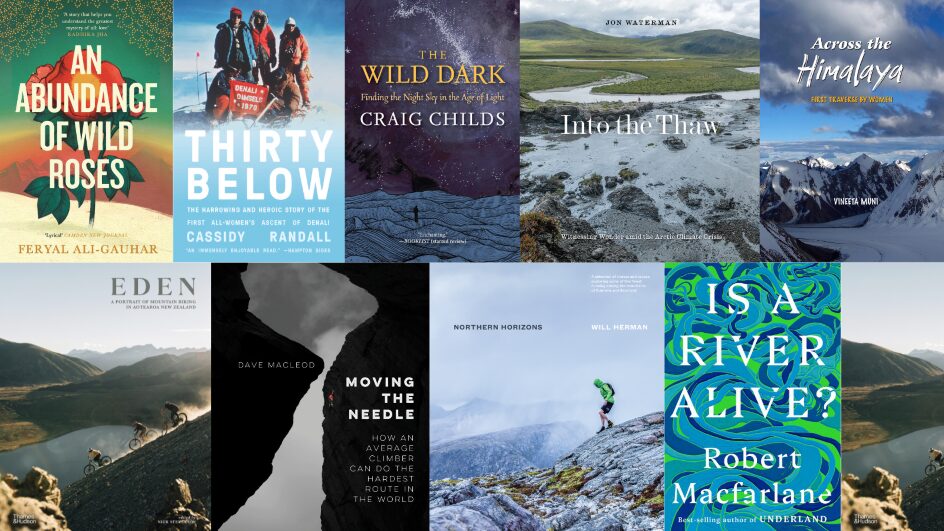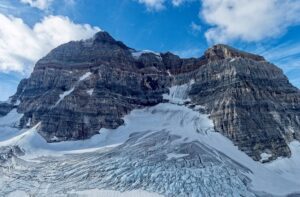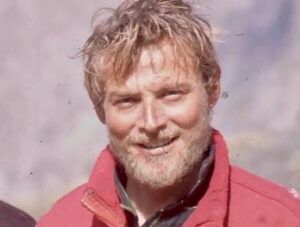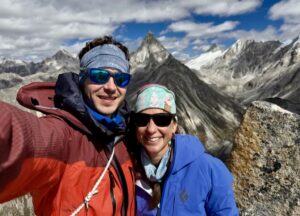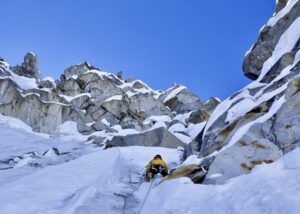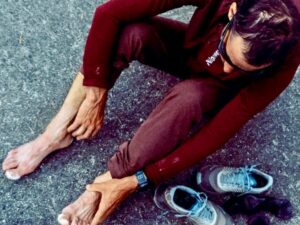Every year, the Banff Centre Mountain Film and Book Festival celebrates the best mountain and adventure writing, film, and photography. The literary highlight of this alpine-themed bacchanal is the Banff Mountain Book Competition, which is divided into eight categories and one grand prize. The grand prize will be awarded at the festival, but the category winners have been announced.
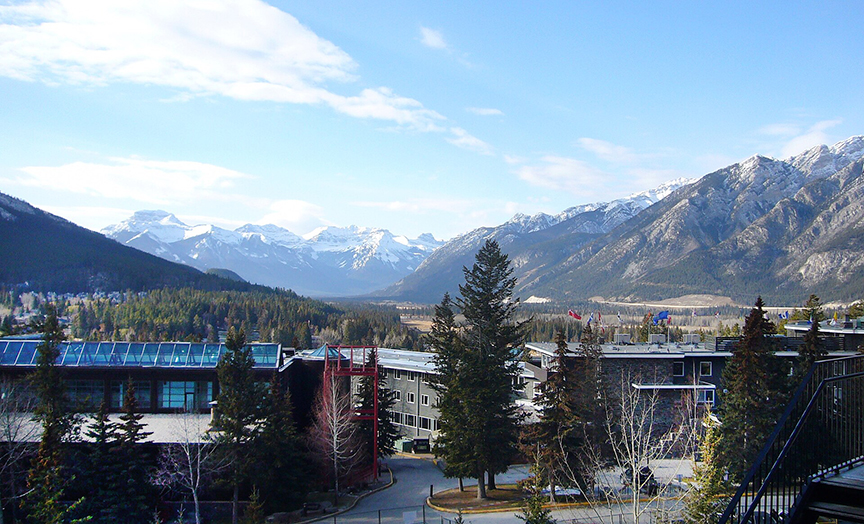
The Banff Centre lies in the Canadian Rocky Mountains, about an hour’s drive west of Calgary. Photo: Wikimedia Commons
First, a moment for the two Special Jury Mentions. Vineeta Muni’s Across the Himalaya is a memoir of Muni’s experience on the 1997 all-female 4,500km trans-Himalayan traverse attempt. Meanwhile, Robert Macfarlane’s Is a River Alive? follows the author through the world’s waterways as he considers the nature and importance of rivers.
Now, the category winners:
The Climbing Literature award went to Moving the Needle by Dave MacLeod. Now, climbers know MacLeod as a master of the sport, but his book positions him, instead, as an average-ability climber from a working-class background who finds himself taking on the world’s hardest trad climbing route.
While most winners paid some homage to the environment, the winner of the Environmental Literature category was The Wild Dark: Finding the Night Sky in the Age of Light, by Craig Childs. Through a stargazing Nevada bicycle journey, Childs made the jurists feel it was “impossible not to look up at the stars.”
The Mountain Article prize, awarded to a magazine piece rather than a book, went to Caroline Van Hemert for Fleet-Winged Ghosts of Greenland. Van Hemert biographied the peregrine falcon, from the hunting birds of princes to the unhappy stars of Rachel Carson’s Silent Spring.
Focusing on one small Greenland population, Van Hemert blended fieldwork writing, family narrative, history, and ecological plea in one article. It also featured cool pictures of birds.
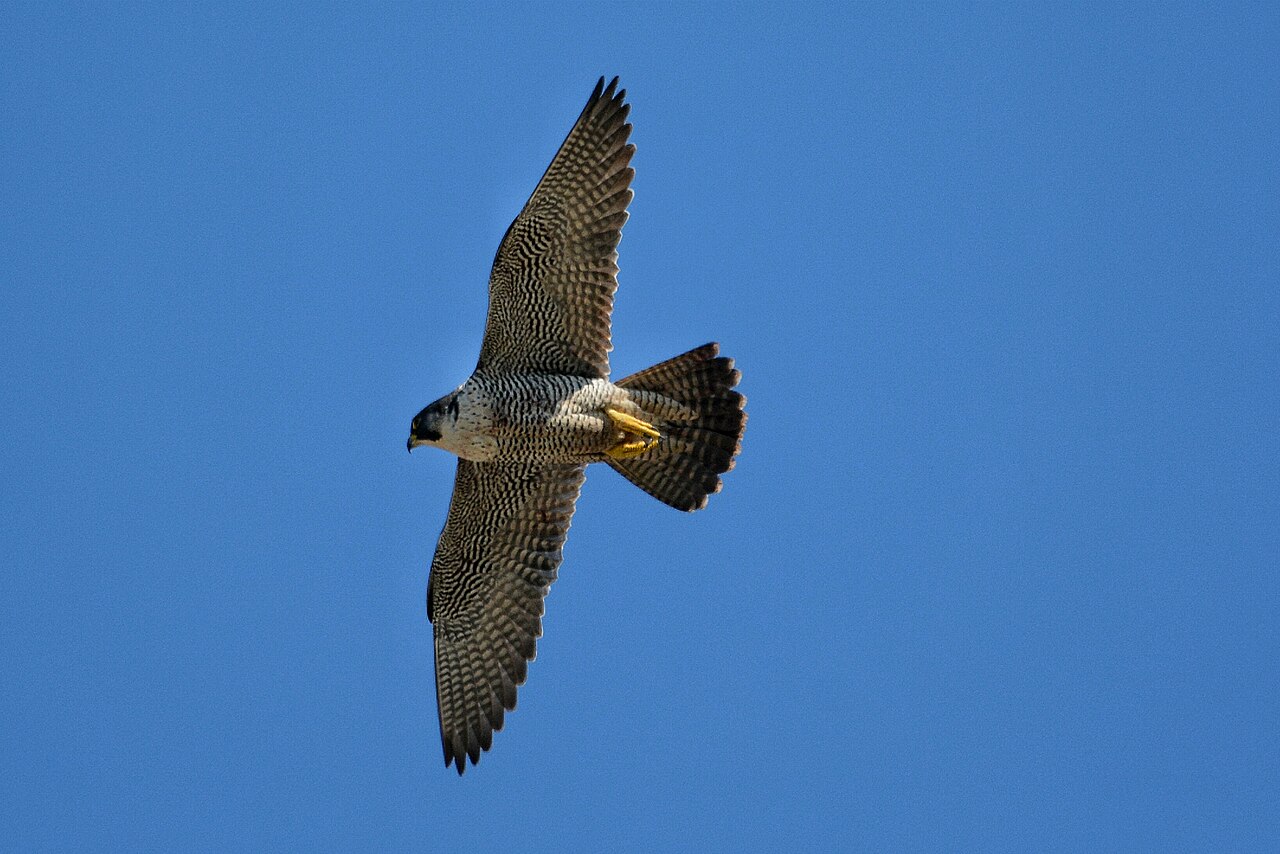
The iconic and award-worthy peregrine falcon. Photo: Steve Childs/Creative Commons
Fiction, nonfiction, and what lies between
The Mountain Fiction & Poetry prize went to Feryal Ali-Gauhar for her novel, An Abundance of Wild Roses. Jurists called the novel, set in a small village in Pakistan’s Black Mountains, “harsh, haunting, and mythic.” It, too, is an environmental story, made even more literal by a conflict with supernatural nature spirits.
The nonfiction equivalent category, the Jon Whyte Award, went to the lengthily titled Thirty Below: The Harrowing and Heroic Story of the First All-Women’s Ascent of Denali by Cassidy Randall. The second account of an all-female expedition on the winner’s list, Randall’s work won praise as an act of historical reclamation. Alex Honnold liked it too, if that sweetens the deal.
Even that seemingly most practical, sometimes dull effort, the guidebook, can be literary and award-worthy. In evidence of this, the jury awarded Northern Horizons by Will Herman in the guidebook category. Both the jurists and external reviewers mentioned the stunning photography: Nice pictures always help.
Finally, the winner of the Adventure Travel prize is Jon Waterman for Into the Thaw: Witnessing Wonder Amid the Arctic Climate Crisis. Waterman is a long-time writer and adventurer who brought both skills to bear in this work. He harnessed his Arctic adventurer skills to bring the reader intimately close to anthropogenic damage in the Arctic. The effect is, as jurist David Chambre wrote, “more meaningful than any political speech.”
As well as eternal kleos and a shiny new sticker for the paperback edition, the winning authors get cash prizes and a chance to win the grand prize, and more cash, in November.
